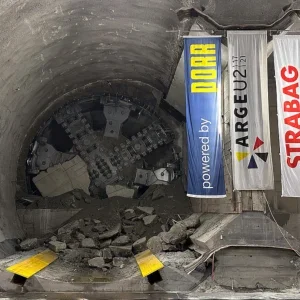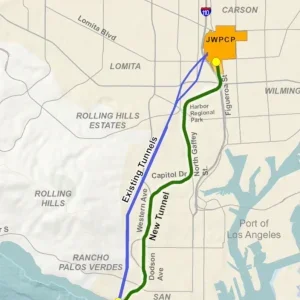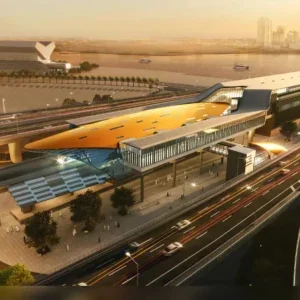A design contract for a major water supply project in Nepal calling for a 26.5km long diversion tunnel and additional works has been awarded to a consortium including Pöyry.
Excavation work on the tunnel is due to commence next year and is scheduled for completion by 2013. It is being designed to transfer 170,000 m3/day of water from the Melamchi river to Kathmandu valley.
The tunnel construction is the biggest civil works package on the US$350M Melamchi scheme to improve water supplies for Kathmandu, said Pöyry. Earlier plans for the tunnel, which will have a 7.5m2 cross section, envisaged it to be 28km long. The Melamchi scheme is to be completed by mid-2013.
Funding for the project is being provided by the Asian Development Bank (ADB), Nordic Development Fund (NDC), the Japan Bank for International Co-operation (JBIC), the Japan International Cooperation Agency (JICA), OPEC, and also the local government which is contributing US$90M.
Pöyry said its share of the consultancy contract is approximately 7M Euro (US$11M), which is most of the design consortium fee. The other firms in the consortium are Hifab International of Sweden and local company Multi Consultants.
The green light for the delayed project was given after ADB agreed to revised terms for the project, including dropping its requirement to have a management company to oversee the country’s water resources. Severn Trent Water, a UK utility, was initially selected but the government refused to ratify the appointment (T&TI, May, p6).
In February, ADB said that the overall project cost was US$317M, which was much lower than the estimate of US$464M in 2000. The bank is providing the project with loans totalling US$137M.
The project development work began in the late 1980s to address the long-term water shortage in the Kathmandu valley. It is proposed that the Melamchi project will be the first stage in a series of water transfer projects that tap the rivers of neighbouring valleys, such as the Yangri and Larke. Eventually, the scheme is to transfer more than 500,000m3/day.







